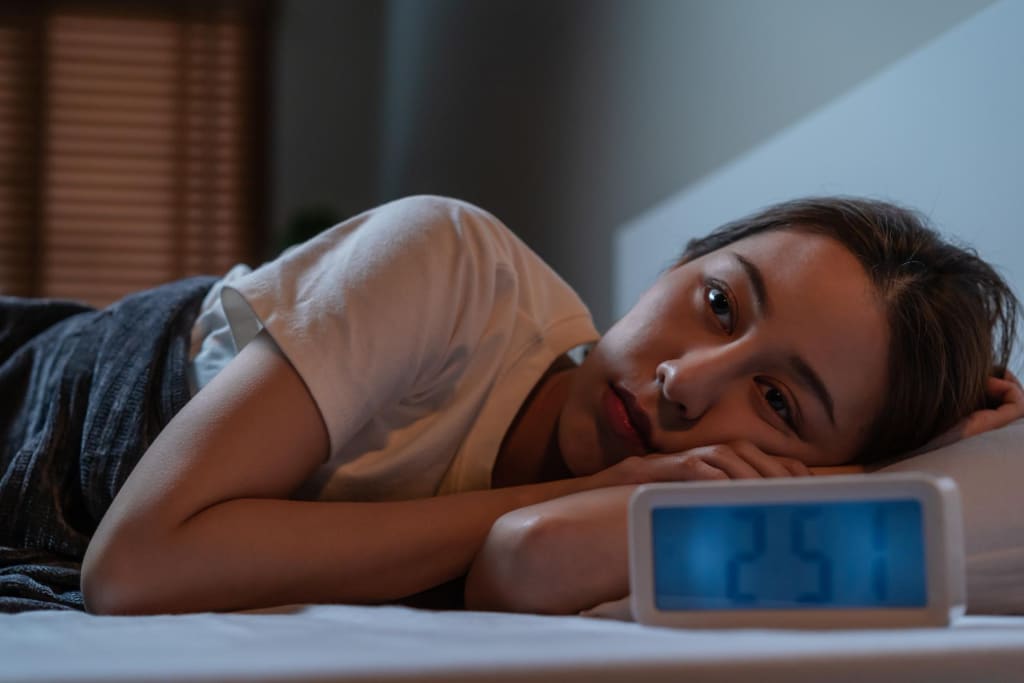Are you struggling with insomnia?
Learn all about it

Insomnia is a common sleep disorder that affects millions of people around the world. It's characterized by the inability to fall asleep or stay asleep, leading to poor sleep quality and a variety of health consequences.
Types of Insomnia
1. Acute Insomnia
Acute insomnia, also known as short-term insomnia, typically lasts for a few days to a few weeks. It can be triggered by various factors, such as stress, changes in sleep environment, or an upsetting event.
2. Chronic Insomnia
Chronic insomnia, on the other hand, lasts for at least three nights per week for three months or more. It can be a primary disorder or secondary to other health conditions, medications, or lifestyle factors.
Causes of Insomnia
1. Lifestyle Factors
Several lifestyle factors can contribute to insomnia, including poor sleep habits, irregular sleep schedule, excessive caffeine or alcohol consumption, and lack of physical activity.
2. Medical Conditions
Certain medical conditions can cause insomnia or exacerbate its symptoms, such as sleep apnea, chronic pain, gastroesophageal reflux disease (GERD), and hormonal imbalances.
3. Mental Health Disorders
Mental health disorders, like depression, anxiety, and post-traumatic stress disorder (PTSD), are often associated with insomnia. Addressing the underlying mental health issue can improve sleep quality.
4. Sleep Environment
A comfortable and conducive sleep environment is crucial for a good night's sleep. Factors like noise, light, temperature, and mattress quality can impact one's ability to fall asleep and stay asleep.
Symptoms and Effects of Insomnia
1. Physical Symptoms
Physical symptoms of insomnia include difficulty falling asleep, frequent awakenings, early morning awakenings, and non-restorative sleep. These can lead to daytime sleepiness, fatigue, and decreased performance at work or school.
2. Emotional and Cognitive Effects
Insomnia can also have significant emotional and cognitive effects, such as irritability, mood swings, difficulty concentrating, and impaired memory.
Diagnosing Insomnia
1. Medical Evaluation
To diagnose insomnia, a healthcare professional will typically conduct a thorough medical evaluation, including a physical examination and a review of the patient's medical history, sleep habits, and any potential underlying conditions.
2. Sleep Diary
Patients may be asked to keep a sleep diary for a week or two, recording bedtime, wake-up time, sleep quality, and any nighttime awakenings. This can provide valuable insights into sleep patterns and potential triggers.
3. Sleep Studies
In some cases, a sleep study (polysomnography) may be recommended to further investigate the causes of insomnia. Sleep studies involve monitoring the patient's brain activity, eye movements, heart rate, and other physiological factors during sleep.
Treatment Options for Insomnia
1. Lifestyle Changes
Lifestyle changes are often the first line of treatment for insomnia. These may include establishing a regular sleep schedule, creating a relaxing bedtime routine, avoiding caffeine and alcohol close to bedtime, and engaging in regular physical activity.
2. Cognitive Behavioral Therapy for Insomnia (CBT-I)
CBT-I is a well-established, evidence-based treatment for insomnia. It involves identifying and changing negative thoughts and behaviors related to sleep, as well as incorporating relaxation techniques and sleep hygiene practices.
3. Medications
In some cases, prescription or over-the-counter sleep medications may be recommended for short-term use. It's essential to use these medications under the supervision of a healthcare professional and to discuss any potential side effects or interactions with other medications.
4. Alternative Treatments
Alternative treatments, such as melatonin supplements, herbal remedies, and acupuncture, may provide relief for some individuals with insomnia. It's important to discuss these options with a healthcare professional before trying them.
Prevention Strategies
Preventing insomnia involves maintaining healthy sleep habits and addressing any underlying factors that may contribute to sleep disturbances. Some strategies for preventing insomnia include:
- Adhering to a regular sleep schedule
- Creating a relaxing sleep environment
- Limiting exposure to screens before bedtime
- Practicing relaxation techniques, such as deep breathing or meditation
- Engaging in regular physical activity
Insomnia is a common sleep disorder that can significantly impact one's quality of life. By understanding the causes, symptoms, and treatment options, individuals can take steps to improve their sleep and overall well-being. Early intervention and a proactive approach to sleep health can make a significant difference in managing insomnia and preventing its long-term consequences.





Comments
There are no comments for this story
Be the first to respond and start the conversation.